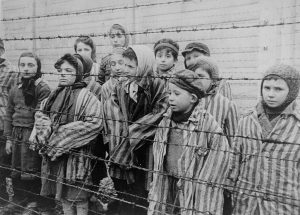This month we have had the pleasure to hear from Moira Oliver who is the Chief Counsel and Head of Policy at BT. BT is a British multinational telecommunications services company with operations in around 180 countries and so Moira’s role in the company is an integral cog in their system; she currently leads BT’s human rights programmes and is particularly involved in the Business Network for the Rule of Law, to which BT is a founding member. Moira speaks on her varied role, the aspects she enjoys the most and what can be done to ensure human rights is addressed globally.
How did your perception of BT change ever since you began working there?
I came to BT from [city law firm] Slaughter and May where I had trained and worked on corporate and banking deals. Our [BT] business has changed significantly in that time – in the early days the legal team were working on content deals with dial-up internet access; now it’s superfast broadband, TV and sport. My perception however has stayed the same: it’s a great place to work, talented people, with lots of opportunities to develop professionally. In my time here I have worked on privacy issues, commercial deals, development of our TV platform, corporate social responsibility, environment and now human rights.
Can you tell Lawyer Monthly what your role at BT entails? What is the favourite part of your role as a Chief Counsel and why?
I moved from our legal team to our strategy and policy team to lead BT’s human rights programme. We’ve committed to implement the UN Guiding Principles on Business and Human Rights (UNGPs). The UNGPs expect business to ‘know and show’ their human rights impacts, both from their own operations but also in their wider business relationships. That means my job is very varied - from reviewing and developing our human rights policy approach, contract requirements, training, communications and assessing the human rights impacts of specific business proposals. Our Modern Slavery Act statement and programme fall within my remit too. I report regularly to our Human Rights Steering Group, which is chaired by the CEO of our Consumer business, our executive committee and Board.
My favourite part of the role is working in such a new and fast-moving area, understanding what it means for our business and working closely with other BT teams to refine and improve what we do. It’s not necessarily about creating new processes, but looking at existing processes in a new and creative way. For example, the UNGPs guide companies to look at risk to people rather than risk to the company. I work very closely with our legal, procurement, security, human resources, sales, risk and compliance teams to do this.
I also enjoy collaborating with other companies, civil society and academics to exchange views and develop business’ approach to human rights. We’re working with The Institute for Human Rights and Business and others to better understand the impact of large-scale sports events on human rights where we focus on the role of sports broadcasters. We are also one of the founding members of the recently-formed Business Network for the Rule of Law, in which we’re particularly focussed on the challenge of respecting human rights when operating globally.
What are the particular human rights challenges faced by [BT/the communications sector]?
The rights to privacy and free expression are critical to our business – particularly when it comes to the role we play in the UK government’s use of investigatory powers, and rights for people to access content online. That’s why we published our Privacy and Free Expression in UK Communications report in 2015 – to explain our approach to these complex issues.
How important is it to ensure the Modern Slavery Act is adhered to? What are the main challenges in ensuring that companies and employees adhere to this?
The Act is critical to addressing the pernicious crime of modern slavery. The reporting obligation is a catalyst for companies to re-think their approach to due diligence on these issues.
In regard to human rights – what do you think could be done internationally to ensure equality for all is better achieved?
There’s no single solution, but at an international level change has to come from nations fully accepting and implementing their responsibilities under international treaties to protect and fulfil human rights. From a corporate perspective, I think the emerging legislation in many countries to report on human rights measures is certainly helping to drive change.
Regarding the above, what do you do as Head of Policy to ensure you (and your team) are stepping closer to that aim?
Ongoing human rights due diligence is key. We have to keep moving forward in that aim, not doing one assessment and thinking our work is finished. At the same time, being more transparent and talking to other external stakeholders can be really helpful to drive change.
What are your future goals at BT and what will you do to ensure you achieve them?
My goal is to make sure we’re always doing the best we can to respect human rights. In an organisation of more than 100,000 people, serving customers in 180 countries, we need to keep focussed on integrating our commitments and making sure everyone at BT understands them.




















